 A man walks into a room occupied by two women. One he loves, one he hates. He utters one line, then exits. One of the women then follows him.Scene Exercise Final: Historical
A man walks into a room occupied by two women. One he loves, one he hates. He utters one line, then exits. One of the women then follows him.Scene Exercise Final: Historical
“You’re quiet. Are you scared?”
Imiu rubbed her arms. “A little,” she said.
“It’s only natural.”
Her mother hummed behind her. Hand followed comb down Imiu’s long black hair.
“Isn’t it exciting?” her mother said. “Did you ever in your best dreams imagine you’d someday live in a room like this?”
Imiu had to admit she hadn’t. Her gaze hadn’t rested since they arrived, moving from wall to ceiling to wall.
Stiff scenes of daily activity in the Queen’s court surrounded them in fresh hues of black and red and white and yellow and blue; scenes of attendants serving the Queen delicacies, of wise men advising her, of military commanders presenting her with a chain of captures slaves. All of this was under a ceiling spangled with luscious clusters of grapes on fertile vines.
Outside, workers labored under a parching sun with hot winds dusting their faces and grit penetrating their clothing. In here, it was cool, spacious, and colorful.
“Stand up! Let me look at you!” her mother said.
Imiu stood and turned. Her sleek white dress unfolded from her lap and fell to floor length. The weight of earrings and a necklace called attention to themselves. She’d never known gold was so heavy.
Her mother clasped her hands in delight. Tears glazed her eyes. “You look like royalty!” she cried.
Imiu felt like a princess.
An imperfection on Imiu’s eyelid snagged her mother’s attention. She dove for the cosmetics box.
Was there an imperfection? Imiu wondered. Or did her mother imagine it, wanting an excuse to open the painted cedar box again?
As the lid lifted there appeared a dazzling display of alabaster and brightly colored glass jars filled with unguents and oils. Her mother reached for the blue paint container and wooden khol applicator.
She went to work on Imiu’s left eyelid as four male servants paraded past them carry an impressive array of foods—preserved meats, wine, bread baked in animal shapes, dates, grapes, garlic, onions, and cumin.
Her mother’s hand paused. She closed her eyes and breathed in rapturously the culinary odors.
“I wish you were enjoying this more, Imiu!” she moaned. “Today should be the happiest day of your life!”
But it wasn’t, and Imiu knew if she said anything, they’d argue.
Her eyes must have spoken for her, because the next thing she knew, her mother was slamming the lid on the cosmetics box.
“You’re thinking of that stonemason’s son, aren’t you?” she shouted.
“His name is Intef, mother.”
“His name is of no importance. He is of no importance.”
“He loves me, mother, and he makes me happy.”
“How can you say he loves you when he wants to take you away from here to a life of mud and poverty to raise a litter of ill-clad and ill-educated children? For generations our family has served the wealthiest houses in Egypt and now we have an opportunity to serve royalty. You would throw that away for a stonemason’s son?”
Imiu said nothing. Her lack of contrition angered her mother more.
“I can’t believe I’ve raised such a selfish daughter!”
“Intef…”
“I don’t want to hear that name! I forbid you to speak his name!”
“He’s here, mother.”
A tall bronze-skinned young man with broad shoulders and thick arms entered the room. He wore the clothing of a kitchen servant, one of the four men who had delivered food.
Stepping between mother and daughter, he took Imiu by the shoulders. “I’m not going to let you die,” he said.
Imiu looked into his eyes and was lost. It wasn’t the first time she’d drowned in those eyes. In her best dreams she had not dreamed of lavish rooms, she’d dreamed of these eyes.
Intef jerked. Alarmed, his hand slapped the back of his neck as though he was swatting an insect. His mouth twisted in horror. He sank to his knees and collapsed onto the stone floor.
“Mother, what did you do?” Imiu screamed.
With calm, steady hands, her mother returned a small vial and needle to the cosmetics box.
Imiu trembled uncontrollably. “What did you do?” she screamed again.
“Asp venom.”
“But…why?”
“I’m not about to let a stonemason’s son ruin everything for us.”
Imiu felt her knees grow weak. She began to sink next to the body. Cold, iron hands caught her.
“Stand up!” her mother ordered. “You’ll get your dress dirty. And I forbid you to cry! You’ll ruin your makeup!”
Her mother ushered her to a straight-backed chair set against the wall.
“It’s time,” she said. She kissed her daughter’s cheek. “Make me proud.”
Her mother called for workers to remove the stonemason son’s body. They obeyed her without question. She followed them out.
Not a moment passed before Imiu heard a commanding shout. The walls trembled as restraints were severed and mountainous granite blocks slid down grooves, stone against stone, sealing off the antechamber.
Imiu trembled in the dark. She glanced in the direction of a door she could not see and recalled her training.
If the Queen calls you at any time, you shall rise up and say, “I will do it.”
Imiu tried not to cry. It would ruin her makeup.
Jack Cavanaugh, together with Bill Bright, is the author of
Storm and its sequel
Fury, to be released in September.
http://www.stevelaube.com/authors/jackcavanaugh.htm






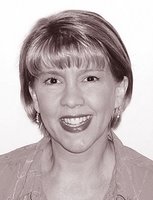

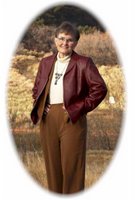
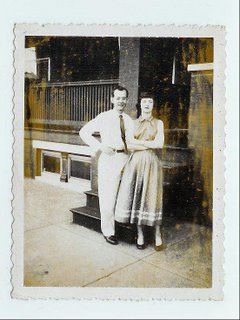
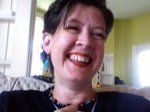

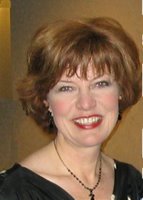
 A man walks into a room occupied by two women. One he loves, one he hates. He utters one line, then exits. One of the women then follows him.
A man walks into a room occupied by two women. One he loves, one he hates. He utters one line, then exits. One of the women then follows him.





